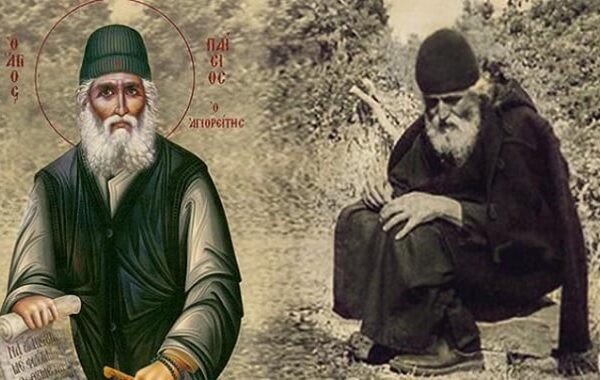How people become atheists
30 May 2023‘There’s a danger that, if people pay no attention to little things, this neglect will then extend to greater and more sacred ones, without their realizing. They vindicate themselves by saying that this isn’t important, that that doesn’t matter and they’ll reach the point, God forfend, of completely disdaining all things divine and will end up as impious, shameless atheists’ (Saint Païsios).
The great, modern Athonite Elder and Saint points out a pertinent problem which can arise in the spiritual life of Christians- the insidious, barely discernible path which believers often take and which leads, without them being aware, to impiety, shamelessness and even atheism. And what’s the tragic thing about this? That, although these believers blast atheists for being mindless, in that they have no veneration towards God, and for acting impudently towards other people, they themselves are already treading the same path as the atheists, meaning that, to a greater or lesser degree, you’ll find them worshipping the same divinity: their self and their ego. Their rebuke is tantamount to self-condemnation and self-flagellation. Clearly this is spiritual blindness on the part of many Christians, whose minds are in the darkness of delusion, because their faith’s ideological and works in a ‘pietistic’ way, according to Saint Païsios. He makes the distinction between genuine veneration, as an awareness of the living God in people’s lives, and bad ‘piety’, which he understood not as proper faith, but a formal context that desiccates the truth, as was the case with the Pharisees in the time of the Lord.

What’s the characteristic feature of this insidious, inconspicuous way which leads to complete disdain for things divine and to all the other negative and demonic things? According to the saint, it’s denigration of the supposedly minor commandments of God, disdain for them. For example, failure to observe the fast on Wednesdays and Fridays. How many of us Christians get round this with the thought that the Lord said: ‘Do you not see that nothing that enters a person from the outside can defile them?’ (Mark 7, 18). Some people interpret this in accordance with the passion of self-indulgence, not as Christ meant it and as the Fathers understood it. Besides, how easy is it to miss prayers, either personal or at the Divine Liturgy, on the pretext that either it’s too late or we’re tired. We find the perfect excuse for ourselves. Moreover, how many times do we find ourselves in a difficult position or are unfairly slighted by someone and we can’t wait to come back with an abusive response or we want to take revenge for the indignity to which we’ve been subjected? The ready excuse on our lips is that, if we don’t respond in kind, they’ll tear us apart. That, ‘These days, you can’t go round with the cross in your hand’. And these are certainly not the only examples.
Saint Païsios goes further, however, with God’s illumination and his own sound logic: denigration of small things leads to disdain for greater and more sacred ones. If you turn a blind eye to one of God’s commandments which is ‘minor’ as far as you’re concerned, you go on, with mathematical precision, to do so with the greater ones also. Even popular songs make this point ‘When I’m going downhill, going downhill, God himself doesn’t stop me’. Because disdain for anything that’s true is ‘going downhill’, and there’s no stopping it, like an avalanche. The bottom line is the thinking of the saint, as we mentioned: the more that people ignore even the smallest truth, the more they’re blinded spiritually, because their egotism swells within them and they literally become puppets of the devil. Atheism, impiety and shamelessness gradually build up within them.
But the lack of faith of these believers is revealed for all to see from the beginning. Because, according to God’s word, there aren’t any great or small commandments. Since they all have their origin in the word of God, they represent his personal action and are directly linked to each other. Each of God’s commandments either unites us with him or distances us from him, depending on our attitude and our actions. Do I observe all of God’s words? Then I’ll find him within me. Do I ignore him because I judge (and the whole of human egotism is revealed in that word) that something doesn’t carry the same weight? Then I set aside God and all of his deifying and redemptive activity. The Lord himself revealed this truth to us, and the apostles and saints also preached it because they had living experience of it. ‘Therefore anyone who sets aside one of the least of these commands and teaches others accordingly will be called least in the kingdom of heaven (Matth. 5, 19). And Saint James, the Brother of our Lord, says: ‘For whoever keeps the whole law and yet stumbles at just one point is guilty of breaking all of it. For he who said, “You shall not commit adultery,” also said, “You shall not murder”. If you do not commit adultery but do commit murder, you have become a lawbreaker’ (2, 10-11).
Indeed, may God protect us from such degradation and atheism.






